
Bruce Bower has written about the behavioral sciences since 1984. He often writes about psychology, anthropology, archaeology and mental health issues. Bruce has a master's degree in psychology from Pepperdine University and a master's degree in journalism from the University of Missouri. Following an internship at Science News in 1981, he worked as a reporter at Psychiatric News, a publication of the American Psychiatric Association, until joining Science News as a staff writer. In 1996, the American Psychological Association appointed Bruce a Science Writer Fellow, with a grant to visit psychological scientists of his own choosing. Early stints as an aide in a day school for children and teenagers with severe psychological problems and as a counselor in a drug diversion center provided Bruce with a surprisingly good background for a career in science journalism.

Trustworthy journalism comes at a price.
Scientists and journalists share a core belief in questioning, observing and verifying to reach the truth. Science News reports on crucial research and discovery across science disciplines. We need your financial support to make it happen – every contribution makes a difference.
All Stories by Bruce Bower
-
 Psychology
PsychologyWhen it’s playtime, many kids prefer reality over fantasy
Given a choice between fantasy play and doing the things that adults do, children prefer reality-based tasks, studies suggest.
-
 Anthropology
AnthropologyAncient kids’ toys have been hiding in the archaeological record
Some unusual finds from thousands of years ago are actually toys and children’s attempts at mimicking adult craftwork.
-
 Archaeology
ArchaeologySharp stones found in India signal surprisingly early toolmaking advances
Toolmaking revolution reached what’s now India before Homo sapiens did, a new study suggests.
-
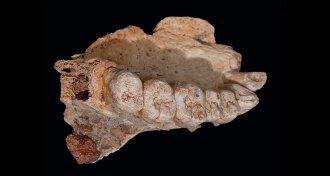 Anthropology
AnthropologyAn ancient jaw pushes humans’ African departure back in time
If an ancient jaw found in an Israeli cave belongs to Homo sapiens, the humans left Africa tens of thousands of years earlier than we thought.
-
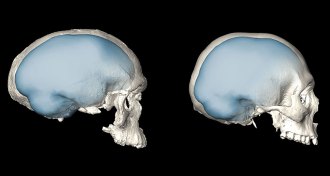 Anthropology
AnthropologyHuman brains rounded into shape over 200,000 years or more
Ancient humans’ brains slowly but surely became round, scientists say.
-
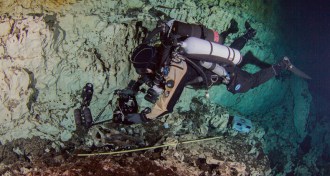 Anthropology
Anthropology‘First Face of America’ explores how humans reached the New World
New documentary shows how an ancient teen and an infant have illuminated scientists’ understanding of the peopling of the Americas.
-
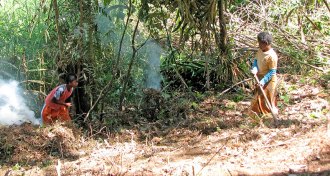 Anthropology
AnthropologyHunter-gatherer lifestyle could help explain superior ability to ID smells
Hunter-gatherers in the forests of the Malay Peninsula prove more adept at naming smells than their rice-farming neighbors, possibly because of their foraging culture.
-
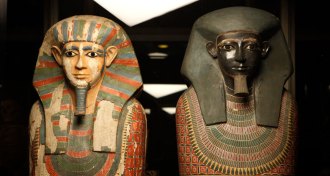 Anthropology
AnthropologyDNA solves the mystery of how these mummies were related
Two ancient Egyptian mummies known as the Two Brothers had the same mother, but different dads.
-
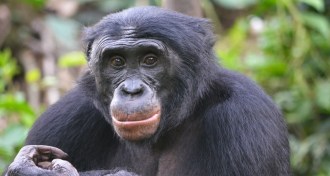 Anthropology
Anthropology‘Laid-back’ bonobos take a shine to belligerents
Unlike people, these apes gravitate toward those who are unhelpful.
-
 Archaeology
ArchaeologyHow the Dead Sea Scrolls survived a war in the 1960s
50 years after the Dead Sea Scrolls survived a war, another possible scroll cave offered tantalizing new clues.
-
 Science & Society
Science & SocietyU.S. religion is increasingly polarized
Organized religion in the United States increasingly belongs to fervent believers, a new study finds.
-
 Humans
HumansThe story of humans’ origins got a revision in 2017
Human evolution may have involved the gradual assembly of scattered skeletal traits, fossils of Homo naledi and other species show.